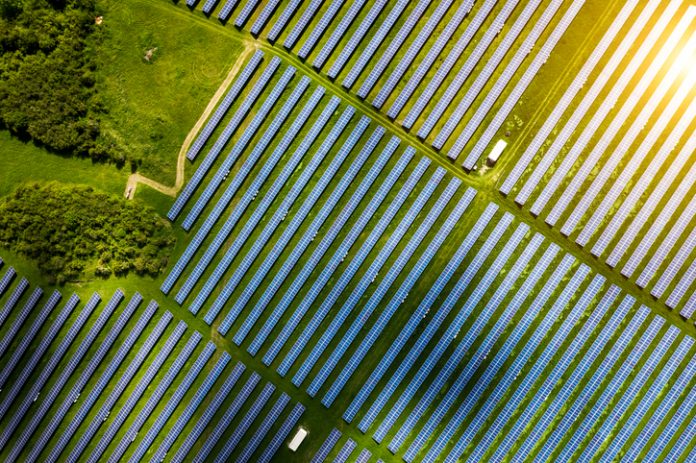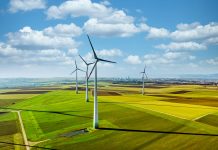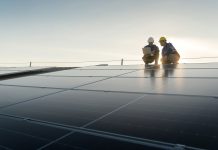Grant Folley, Head of Origination & Planning at EDF Renewables UK, focuses on solar, which he argues is changing how we power the UK
Solar power is becoming increasingly important in the United Kingdom as the country looks to scale up its homegrown energy production. The recent impact of the Ukraine war and the rising cost of living have highlighted the need for the UK to reduce its reliance on fossil fuels, which are subject to volatile price fluctuations.
The United Kingdom has seen substantial growth in solar photovoltaic installations over the last few years, with 2023 reaching record numbers not seen since 2011, during the height of Feed-in-Tariffs. During summer, solar accounts for over 25% of demand, during peak output, and this only set to grow in the coming years.
Decentralising our energy system
The UK’s energy landscape is undergoing a significant transition away from the historical reliance on a fairly small number of large gas and coal power stations. Instead, renewable energy generated from solar, wind, and other technologies is increasingly powering British homes and businesses. This renewable generation will be much more evenly distributed, with solar or wind located within most regions.
Several key drivers are propelling this transition. Renewable costs have fallen dramatically, and government policies are pushing for a shift towards low- carbon energy sources to meet the UK’s binding climate change targets. Local councils are setting their own action plans to contribute to sustainability and energy security.
This decentralised approach to energy production offers numerous advantages. By relying on power stations of various sizes rather than a few large plants, the UK’s energy system becomes more resilient against supply disruptions. Home and business owners can become energy producers by installing solar panels, contributing to the overall energy supply. This shift towards a more distributed energy system is expected to continue, benefitting British households, businesses, and the climate.
Opportunities and benefits of solar
Solar power offers several opportunities and benefits. It is consistently ranked as one of the most popular forms of energy generation, receiving overwhelming support from the public. A recent survey found that 94% of those living near an existing, proposed, or under-construction solar farm had either a supportive or neutral view of solar (Copper Consultancy, 2023).
One of the key advantages of solar power is its cost-effectiveness. In recent years, the price of solar technology has significantly decreased, making it cheaper than gas and many other alternatives. Solar installations can also be deployed quickly. Solar farms, which have the potential for large-scale energy generation, can be designed and installed in less than 24 months.
Solar power also offers job creation and investment opportunities. The UK solar industry currently employs more than 6,500 people, which could increase to over 42,000 if the UK commits to 40GW of solar power by 2030 (Solar Energy UK). We include community benefit packages on all our solar developments to support local projects and initiatives, contributing further to local economies.
Energy security vs food security: We can have both!
Solar farms currently take up less than 0.1% of UK land. Even with a five-fold increase in deployment – in line with the UK Government’s energy strategy – solar farms would occupy 0.29% of the UK’s total land area (Solar Energy UK). As the technology in a solar farm becomes even more efficient, this figure has been reducing over time, as fewer panels are needed to generate the same amount of energy.
The Department for Environment, Food and Rural Affairs say climate change is the biggest threat to UK food security. It could reduce the UK’s stock of high- grade agricultural land by nearly three-quarters by 2050.
Costs have increased in recent years for agricultural businesses. Farmers have been exploring how to diversify their income to continue being able to farm. Solar can provide a direct and long-term revenue stream for farmers, allowing them to reinvest in the food production side of their business.
All types of solar are needed
To realise the benefits of solar and to power our homes solely on clean energy, we need to focus on developing both of the different forms of solar – rooftop and ground mount. Pursuing just one or the other will not be sufficient. That is why EDF Renewables UK focuses on playing our part in bringing projects forward across the UK.
In early 2024, our first three utility scale (50MW) solar farms will become operational in Anglesey, Lincolnshire and Cambridgeshire. We have worked closely with the communities in each of these areas and look forward to celebrating with them and supporting local initiatives via the community benefit schemes in place for each.
Larger scale solar farms require consent directly from the Secretary of State, and we are pleased to say that we received consent for our largest project to date, Longfield in Essex, in Summer 2023. Once operational, it will have the capacity to power approximately 60,000 households. We will also advance our plans for Springwell in Lincolnshire and Rosefield in Buckinghamshire.
We have also recently expanded our commercial and industrial solar business, enabling organisations to make the most of their roof space, reducing their energy costs and environmental impact.
Solar power is a game-changer for the UK’s energy landscape. As the country aims to reduce its dependence on fossil fuels and meet climate change mitigation goals, solar power offers a renewable and low-carbon solution.
Overall, solar power has the potential to revolutionise the way the UK powers its homes and businesses, providing a sustainable and cost-effective energy solution while reducing carbon emissions and supporting local communities.

This work is licensed under Creative Commons Attribution-NonCommercial-NoDerivatives 4.0 International.











